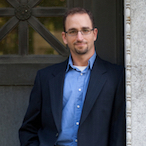The Hawaii Venture Capital Association met last week to discuss impact investing in the state. As a newcomer to the group, I was curious to see what all these traditional investors thought about the relatively new field of impact investing and sustainability. Bill Spencer, HVCA President led the discussion by hitting on many local issues around fresh water, oil dependence, and food security, but also addressed many of the global issues around population growth that impressed on the attendees that Hawaii is not alone in its sustainability challenges.
Spencer said that it is not only easy for entrepreneurs to start a business that makes a difference, it's simply necessary. And for the many curious investors in the room at the HVCA luncheon, he said that the good news is, "You can have your cake and eat it, too" (by investing in companies that make money and that you can feel good about).
Chenoa Farnsworth, Director of the Hawaii Angels, said, "Impact investing is my favorite topic." The idea of using private markets to drive growth in sustainability is relatively new. Farnsworth was inspired by the Social Capital conference SOCAP which took place in San Francisco.
Farnsworth said that traditionally, philanthropy was viewed as something you do when you've already become successful, and that the hat you wore as a philanthropist was a very different one than the one you wore as an investor. To be able to combine investing and philanthropy is simply exciting. "While it's relatively new, it's growing exponentially," said Farnsworth, citing stats that the market for impact investing stands at $500 Billion, having grown 600% over the last 5 years.
One example she pointed to was the Hoop Fund, a micro-investment company focused on artisans in Central America. Farnsworth used the Hoop to invest $25 in an artisan's budding business. In return, she received a piece of wearable artwork (a pin), but will also receive her investment back at some point.
When asked, "Is there a guilt factor associated with [impact investing]?" Farnsworth said that the fundamental focus of impact investing is the same as traditional investment: staying power. Investors might be more likely to consider an impact investment than something conventional but they still want to know that 10 years down the line, the company will still be in business.
-----------------------------------------------------------------------
Scott Cooney is the developer of a new Triple Bottom Line, Monopoly-esque board game, and the author of Build a Green Small Business (McGraw-Hill).
Follow Scott's company, GreenBusinessOwner.com, on Twitter: Twitter.com/GreenBizOwner

Scott Cooney, Principal of GreenBusinessOwner.com and author of Build a Green Small Business: Profitable Ways to Become an Ecopreneur (McGraw-Hill, November 2008), is also a serial ecopreneur who has started and grown several green businesses and consulted several other green startups. He co-founded the ReDirect Guide, a green business directory, in Salt Lake City, UT. He greened his home in Salt Lake City, including xeriscaping, an organic orchard, extra natural fiber insulation, a 1.8kW solar PV array, on-demand hot water, energy star appliances, and natural paints. He is a vegetarian, an avid cyclist, ultimate frisbee player, and surfer, and currently lives in the sunny Mission district of San Francisco. Scott is working on his second book, a look at microeconomics in the green sector. In June 2010, Scott launched GreenBusinessOwner.com, a sustainability consulting firm dedicated to providing solutions to common business problems by leveraging the power of the triple bottom line. Focused exclusively on small business, GBO's mission is to facilitate the creation and success of small, green businesses.














